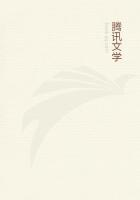What happens to individuals may equally happen to nations. The revenue of a country or the sum total of profits arising from the different kinds of labour, amounted, we shall say, last year, and this year, to fifty millions; but last year the country levied all its profit in goods, in merchandise destined for its consumption; this year, from some mercantile circumstance, some arrangement of exchanges, it has levied the fourth, the third part, in money imported through the frontiers. It is neither richer nor poorer, for this alteration; its consumption will, as formerly, be fifty millions; and with regard to the money imported, apparently its industry required this money, otherwise it will be again exported. To increase the circulating medium of a country, without increasing its capital, without increasing its revenue, without increasing its consumption is to do nothing for its prosperity, nothing for the encouragement of labour.
Since no labour can be accomplished without a capital to set it in motion; since no re-production of wealth can take place without raw materials for the work, and subsistence for the workmen, it follows that the furnisher of those wages and materials has taken the most intimate share in the re-production; he is, in a great degree, the author of its profits, and has the most evident right to participate in them. But he who lends a capital lends nothing else but those wages and raw materials represented by money. He lends a thing eminently productive, or rather the only one which is productive; for since all wealth proceeds from labour, and all labour is put in motion by its wage, he lends labour itself, or the first cause of production in all kinds of wealth. Hence, whenever an odious sense has been attached to the word usury, meaning by it any kind of interest paid for the use of a sum of money, under pretext that as money produced no fruit, there could be no lawful share of profit where there was no profit; in this case, an absurd distinction has been formed. There was just as much reason to prohibit the renting of land, or the wages of labour, because without a capital to put land and labour in exercise, both would remain unfruitful.
Theologians, however, were right in saying that gold and silver were barren by nature: they are barren so long as kept in their own shape; they cease to be barren, the instant they become the sign of another kind of wealth, which is emphatically productive. Theologians, if they determined to abide by the single principle on which their prohibition was founded, should have been contented with declaring usury criminal, every time the lender obliged the borrower to keep the deposit in its primary form, locked up in a strong box, from the moment of borrowing to that of payment. For it is quite certain that money, whilst locked up, produces no fruit; and neither borrower, nor lender can get good of it except by parting with it.
But, if money is of itself barren; it produces no fruit but in so far as it is the sign of other values, then it is evident that no good can be done by multiplying the sign and not the thing. It is true, if you multiply the sign in a single country, you give this country the means of commanding the thing, provided that thing be found in any, country. but when you multiply the sign in all countries at once, you do nothing for any. At present, there exists such a proportion between the sign and the thing, that a pound sterling is worth a bag of corn; but if, by the stroke of a magic rod, you should instantly double all the money in the world, since every thing to be obtained in exchange would continue the same, two pounds in place of one would be required to represent a bag of corn. The quantity of corn consumed by a workman, in food, would not be altered, consequently his wage must be doubled. With twice as many guineas, exactly the same work would be done, and nothing would be changed but names and numbers.
Capitalists require their capital to be employed, that it may gain a revenue; and hence they offer it for a certain price, to such as wish to cause labour; workmen, on the other hand, and those who employ workmen, have need of capital for their labour; and, after reckoning up the profit expected from it, they offer a certain share of their advantage to capitalists. The necessities of money-lenders and of money-borrowers, come thus to a state of equilibrium in all markets; those classes of men agree upon a medium rate. The regulator of their bargain is always the quantity of labour required by consumers, compared with the quantity of capital, representing raw materials and wages, to be disposed of in executing this labour. If the want is great, and the means of labour small, the interest of money will be considerable; if, on the contrary, there is much capital in circulation, and little employment for it, interest will be very low. It must always be regulated by what is called the quantity of money offered in the market, because money is the sign of capital, though not capital itself. Far from being augmented by the magical increase of money above alluded to, capital would not even be increased by the arrival of money, in great abundance, at a particular place of trade, without losing any thing of its value in comparison with the things it purchases; and no change in the rate of interest would result from this circumstance.
Nearly all the circulating capital of each manufacturer and trader is successively presented to him under the shape of money, in its return from the buyer to the seller; but the part of his funds, which a merchant actually has in money, forms, in ordinary cases, but a small portion of the capital employed in his commerce; an infinitely greater portion being kept in its original state in his own warehouses, or in those of his debtors.















